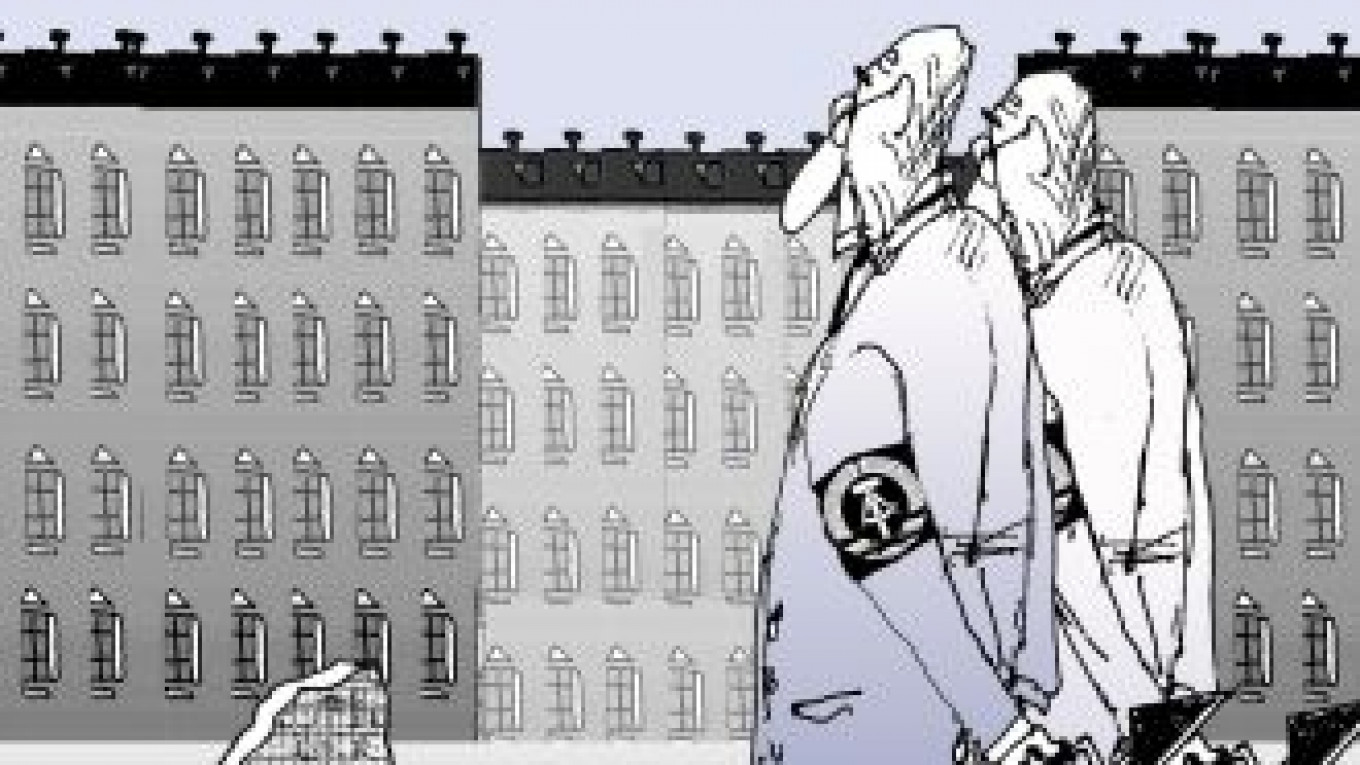On Saturday, Germans marked the 50th anniversary of the building of the Berlin Wall. On Aug. 13, 1961, the East German government sealed off the border to West Berlin to stem a growing tide of East Germans fleeing the communist regime. Soon the administrative border between the sectors occupied by the Soviet Union and its Western allies was replaced with a 160-kilometer-long wall guarded by tripwires, dogs and soldiers who shot to kill.
I was 17 years old when I first saw the Berlin Wall. It was 1988, and I was backpacking across Europe in the summer before college. I clambered up an observation platform in West Berlin to peer over the wall to the Brandenburg Gate. A year earlier, U.S. President Ronald Reagan had stood on the same spot and said: “Mr. Gorbachev, tear down this wall!” A day trip to East Berlin left me most impressed by the snarling East German border guards and the gray faces of people who were prisoners in their own country. Reagan’s challenge seemed preposterous, if not crazy.
Two summers later, I was back. Everything had changed. The wall had burst open during Eastern Europe’s 1989 Velvet Revolution, Germany was rushing toward reunification, and Pink Floyd held an open-air concert in the former no-man’s-land next to the Brandenburg Gate. I stayed in an abandoned house in East Berlin squatted by East German punks, crisscrossing the city on a bicycle by day and partying all night.
Today, nothing is left of the wall except for a few segments of crumbling cement. Berliners have done their best to erase it from the cityscape, constructing new districts and reconnecting rail and road links cut for decades. Yet Germans do not shirk from publicly remembering even the most shameful moments in their recent past. As they commemorated the building of the wall, they contemplated individual destinies — not just of the victims but of the willing helpers who built, supported and guarded it.
Der Spiegel magazine fretted last week that central Berlin was turning into a historical Disneyland trivializing the Communist regime with re-enactors dressed up as East German border guards and tours in vintage Trabant cars, East Germany’s answer to the Volkswagen Beetle. In fact, the city has just completed a unique, 1.5-kilometer-long memorial along Bernauer Strasse, a street that the wall split down the middle, dividing West Berlin parishioners from their church in the East. The grassy strip through the middle of the city exerts a subtle yet powerful effect on the visitor, accomplished by rusty steel columns that evoke the wall while inviting free movement among multimedia information panels.
A small but vocal minority still seeks to justify the Berlin Wall. The head of Germany’s The Left party recently said Germany’s division after World War II should be seen as a logical consequence of Nazi aggression, especially toward the Soviet Union. While the connection is clear, Marxist determinism is hardly an adequate justification for the hundreds of thousands of lives the wall ruined.
This anniversary has been a purely German event, though the wall itself had less to do with a feud between brothers than the struggle for hegemony between two competing ideological systems. Berlin was the first battlefield of the Cold War, and in 1961 the names of the generals were John F. Kennedy and Nikita Khrushchev. When East Germans opened the wall 28 years later, it was possible only with the distant blessing of Mikhail Gorbachev. Many Americans found prophetic meaning in Reagan’s challenge and celebrated the triumph of free-market democracy over communist dictatorship.
It would be more correct to say globalization destroyed communism. The one-party political system and artificially planned economy became increasingly obsolete in a world requiring open borders for people, ideas and goods. The irony of the Berlin Wall is that it fell for the same reason it was built. By November 1989, so many East Germans were fleeing to West Germany via Hungary and Czechoslovakia that the authorities had no choice but to open the border. It is becoming clear that globalization is not a secret U.S. project but a long process in which the United States is playing a temporary lead role.
Returning to Berlin in 2011, I am struck by the prevailing pessimism and self-doubt. Old certainties are vanishing. The living memory of World War II is leaving us, and even the Cold War has become just another historical period. Now there are calls for new walls to stop refugees, immigrants and terrorists.
The East German regime justified the Berlin Wall as a way to keep out fascists, spies and saboteurs. The memorial on Bernauer Strasse is a quiet reminder of the futility of walls built out of fear.
Lucian Kim is a U.S. journalist who started his career in Berlin and was based Moscow for the past eight years. He is writing a book on Putin’s Russia. This comment appeared in Vedomosti.
A Message from The Moscow Times:
Dear readers,
We are facing unprecedented challenges. Russia's Prosecutor General's Office has designated The Moscow Times as an "undesirable" organization, criminalizing our work and putting our staff at risk of prosecution. This follows our earlier unjust labeling as a "foreign agent."
These actions are direct attempts to silence independent journalism in Russia. The authorities claim our work "discredits the decisions of the Russian leadership." We see things differently: we strive to provide accurate, unbiased reporting on Russia.
We, the journalists of The Moscow Times, refuse to be silenced. But to continue our work, we need your help.
Your support, no matter how small, makes a world of difference. If you can, please support us monthly starting from just $2. It's quick to set up, and every contribution makes a significant impact.
By supporting The Moscow Times, you're defending open, independent journalism in the face of repression. Thank you for standing with us.
Remind me later.








